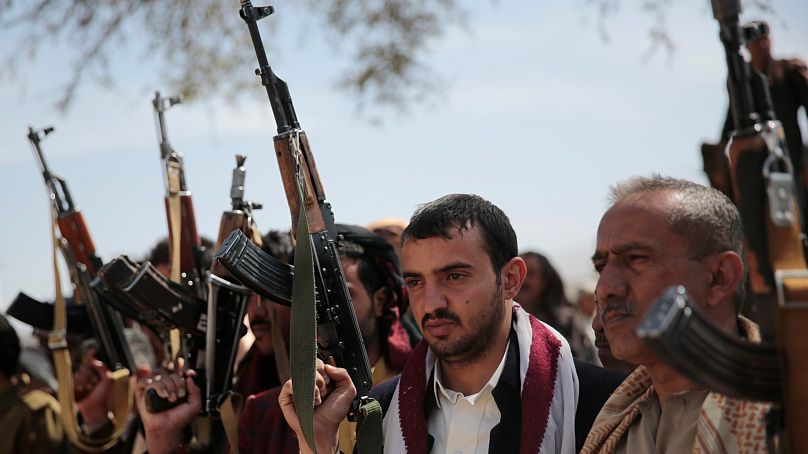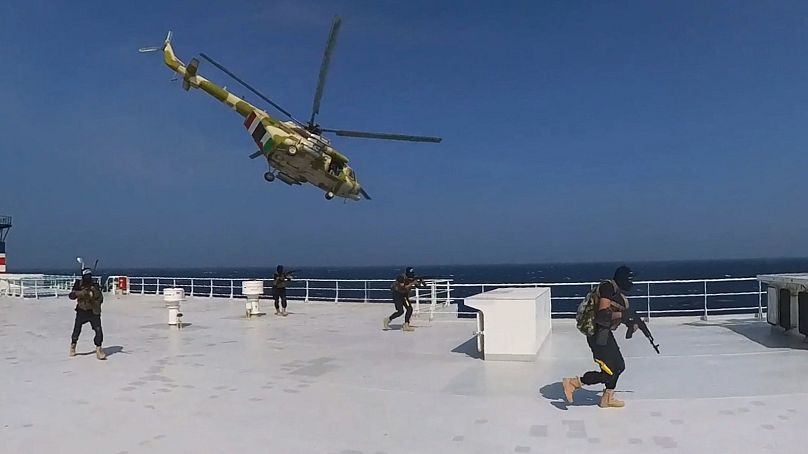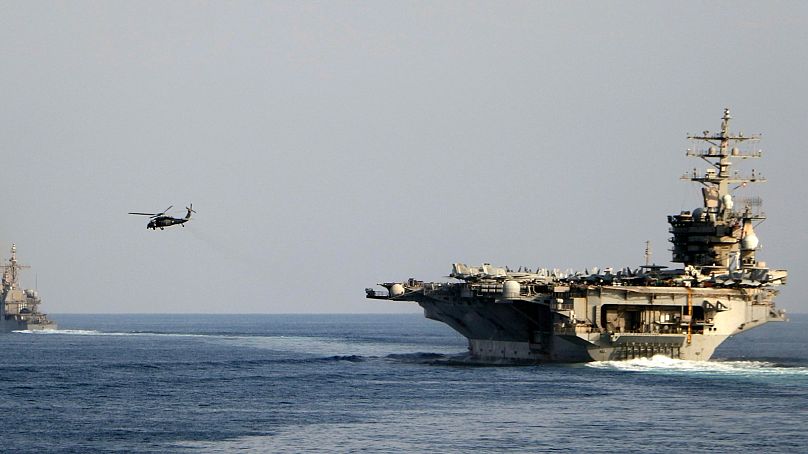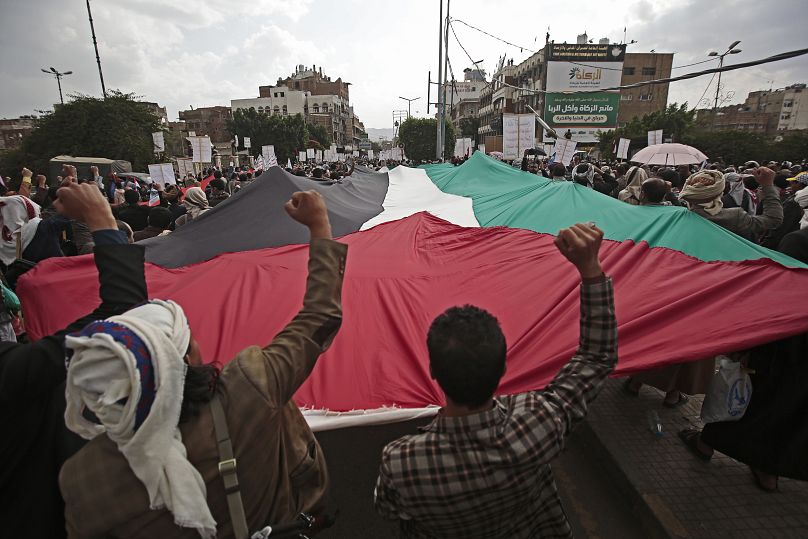Attacks by Houthis have severely disrupted shipping in the Red Sea, a vital waterway that accounts for 12% of world trade.
The Houthis, a rebel movement in Yemen, have been attacking merchant ships in the Red Sea for over a month now.
 ADVERTISEMENT
ADVERTISEMENT
 ADVERTISEMENT
ADVERTISEMENT
In a televised announcement, they vowed to join the Hamas Israel war and protect Palestinians, targeting all vessels bound for Israel.
The attacks have practically opened another front for Israel to the south, as the country already faces shelling from its north border with Lebanon.
Who are the Houthis?
The Houthis are a majority-Shiite Islamist group based in Yemen. They are militarily supported by Iran, according to military experts.
Yemen's official government, Saudi Arabia, the UAE and Malaysia have deemed them a terrorist organisation.
The Houthis currently control much of western Yemen, including the capital Sana'a.
In 2015, a Saudi-led coalition declared war on them, triggering a bloody conflict that has claimed hundreds of thousands of lives.
Hostilities are still active, although a ceasefire has been agreed upon.
What exactly is happening in the Red Sea?
The Houthis are launching missiles and naval drones from controlled territories in Yemen, including the port of Hudaydah.
More than two hundred ships have reported incidents, with some 180 vessels forced to change course, according to University of Bradford assistant professor in logistics and supply chain Gokcay Balci.
The most striking operation, so far, has been the seizing of an Israeli cargo ship, the Galaxy Yemen.
However, apart from some minor damages, no ships have been sunk or reported fatalities.
Most Houthi operations focus on a tiny 32-km sea stretch between Yemen and Djibouti, making it dangerous for ships to pass through.
What are the consequences?
As a result of the attacks, at least eight of the world's 10 largest ship owners - including MSC and Maersk - temporarily halted Red Sea operations, diverting their vessels towards the Cape of Good Hope, in South Africa.
It adds 9,000 kilometres to the journey, extending it by 6 to 14 days, depending on the vessel, says Guy Platten, secretary general of the International Chamber of Shipping.
Most experts agree the huge detours have not had a substantial impact on goods' prices.
However, insurance policies for merchant ships are going up, as well as fuel usage. Logistics exert Balci argues this means an increase of CO2 emissions for each ship by 20% to 35%
Some companies are also having to pay a surcharge for each cargo, ranging from $500 (€449) to $1,000 (€899).
How is the West reacting?
On 19 December, the US announced an operation to restore security in the area, called 'Prosperity Guardian'.
Several countries, like the UK, France, Italy, Spain, the Netherlands, Norway, Australia and the Seychelles have joined the effort.
The announcement was welcomed by Maersk, the world's second-largest ship owner, which said on Monday it would resume Red Sea shipping "as soon as possible".
What could happen now?
Should the Houthis not stop their attacks, the US and its coalition "could be very aggressive and decide to take out some of the rebel positions," says Chris Doyle, director of the Council for British-Arab Understanding.
He adds however that "it's very difficult to do this targeting in the hills of Yemen."
"The Houthis were able to send missiles into Saudi Arabia, to hit Saudi targets such as vital oil infrastructure, and also into the UAE. They have missiles that go well over 1,600 kilometres. It's very dangerous, it's a massive escalation but doing nothing could also be very problematic."
The Houthis said they're going to continue these attacks as long as the Israeli military operations on Gaza continue.
Doyle says this is "tapping into the really deep anger caused by the massive amount of destruction and loss of civilian lives in Gaza, and by the nature of the Israeli bombardment."














